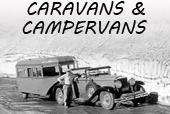A lot of people know boxer dogs to be one of the most versatile breeds around, having the capability of adapting to any role, such as that of a guard dog, a police dog, a seeing-eye dog for the blind, a family pet or a working dog.
What few know is that the boxer dog actually originates from a breed that was primarily trained and used for hunting purposes, the Belgian Brabanter Bullenbeisser. In order to understand how hunting boxer dogs can be made efficient, we first need to go back a few hundred years and take a short look at the Brabanter Bullenbeisser.
The Brabanter Bullenbeisser was the hunting dog of choice in 19th century Belgium and later on Germany. It was a strong, agile, intelligent breed that could take on almost any hunt, whether it was for game, wild boar, bears and so forth.
The Bullenbeisser’s build closely resembles that of today’s boxer, however their head was pointier and their ears longer. Because the dogs would often get ear injuries in their fast paced chases through the woods, most owners would crop their ears since they were puppies. This is also a common practice used on hunting boxer dogs, although a boxer’s ears are not as large as those of the Brabanter Bullenbeisser.
Eventually, the hunting boxer dog took the Bullenbeisser’s place, mostly because of the fact that boxers were a lot easier to train. They also excel in several other characteristics, such as having a great intuition, being extremely fearless and obedient, all of these qualities recommending hunting boxer dogs as one of the best breed to be used for such a purpose.
Their physical qualities are also worth mentioning here, an adult hunting boxer dog reaching around 22 inches in height (calculated at the dog’s shoulder) and at roughly 65 pounds. Despite having such a strong constitution, the boxer remains a very agile dog, his speed and reactions proving crucial in fast paced hunts.
In a hunt, the cooperation between the dogs and the hunters as well as among the dogs themselves is oftentimes of extreme importance. For this reason, hunting boxer dogs are preferred to many breeds, because they can adapt to “teamwork” and they’re extremely obedient and loyal towards their owners (if trained right, obviously).
If a pack of hunting boxer dogs is trained together since their early years, they’ll learn to cooperate and help each other out in the chase, as well as in fights. Another great asset that hunting boxer dogs possess is that they can also “work” with other breeds of hunting dogs. They do need a bit more accommodation to the other dogs, since boxers are rather suspicious at first, but once they get accustomed to their hunting companions this suspicion fades out.
So if you’re thinking about getting a hunting dog to help you out in your runs, a boxer is one of the best choices you could make. Their physical prowess and dominant personalities will give you a huge helping hand, regardless if you’re hunting fast, smart or strong game.












